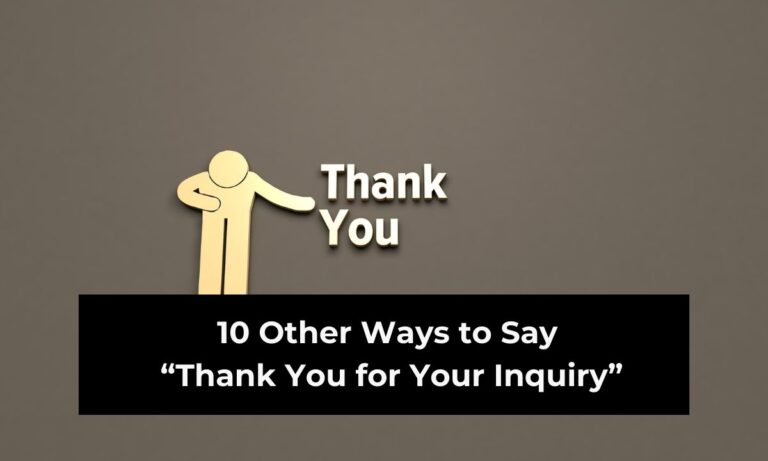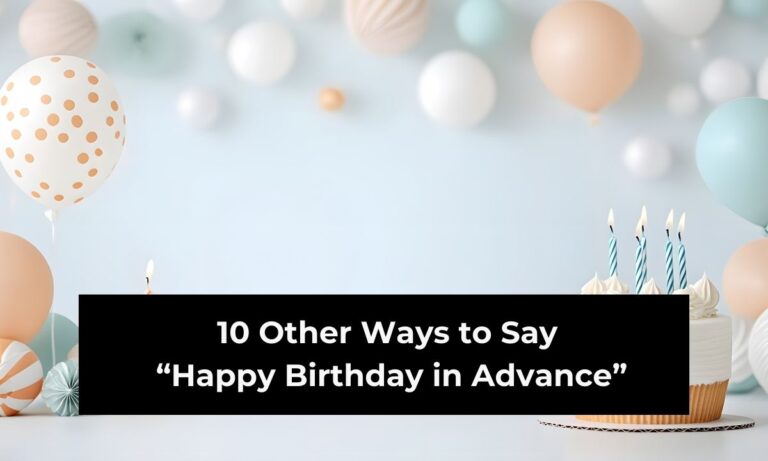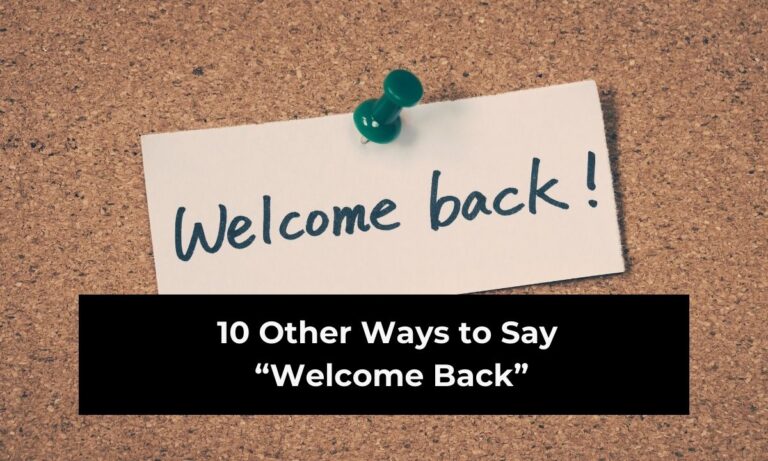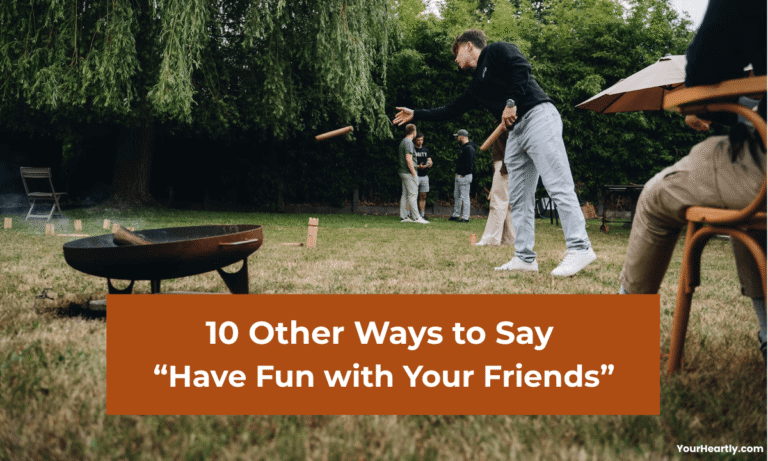When someone shows you kindness, it touches your heart in ways that words can hardly capture. Whether it’s a small gesture, a thoughtful word, or a helping hand during a difficult moment, kindness has the power to make you feel seen, valued, and supported. Saying “thank you for your kindness” is always appreciated, but sometimes you want to go beyond the usual phrase. You may want your words to feel more personal, heartfelt, or unique—something that truly reflects the depth of your gratitude.
You’ve probably had moments when someone’s kindness came at exactly the right time. Maybe a friend checked on you when you were feeling low, a coworker stepped in to ease your workload, or a stranger’s compassion brightened your day. In those moments, you don’t just want to say thanks—you want to make sure the other person understands how much their act of kindness meant to you.
That’s why finding fresh and meaningful ways to express appreciation can make a lasting impression. When you choose words that feel genuine, the other person feels the sincerity behind them. It strengthens your bond, builds mutual respect, and encourages more kindness to flow between you and others.
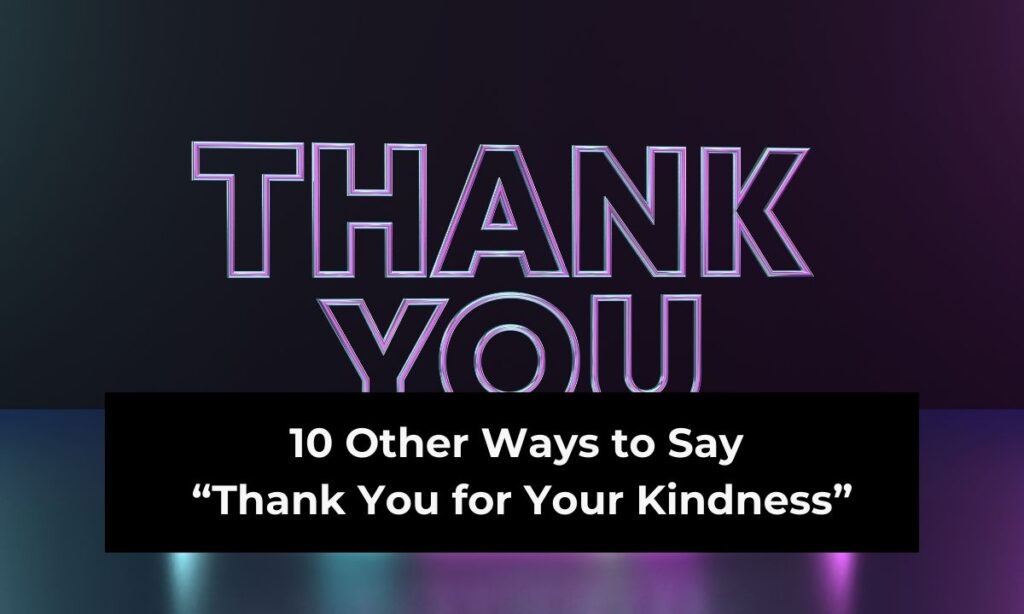
In this article, you’ll discover 12 other ways to say “thank you for your kindness.” Each phrase comes with examples of how you can use it naturally in conversations, messages, or notes. You’ll also learn why these alternatives carry a special meaning and how they help you connect more deeply with the people who support and care for you.
Let’s explore these thoughtful expressions together—so the next time someone shows you kindness, you’ll have the perfect words ready to make your gratitude unforgettable.
1. “Your kindness means more than words can say.”
Sometimes, kindness touches you so deeply that it feels bigger than anything you can express. Saying this lets the other person know their gesture has made a significant impact on you. It communicates that what they did mattered on an emotional level, beyond the surface of everyday appreciation.
When you say, “Your kindness means more than words can say,” you highlight the lasting effect their thoughtfulness has had on you. It’s not just about the act itself but about how it made you feel—understood, supported, and uplifted.
You can use this in heartfelt conversations or even in a thank-you card when you want your gratitude to feel timeless. For example:
- “Your kindness means more than words can say. I’ll always remember how you were there when I needed encouragement.”
- “I can’t explain how much your help meant, but just know your kindness means more than words can say.”
Breaking out of the standard “thank you” with this phrase shows that you see kindness as something extraordinary, not ordinary. It’s especially powerful when someone has gone above and beyond for you, offering more support than you expected.
By saying this, you’re not just thanking them—you’re letting them know their act of kindness has become a meaningful memory you’ll carry forward.
2. “I’m deeply touched by your generosity.”
When someone’s kindness goes beyond a simple gesture and feels incredibly giving, acknowledging their generosity adds depth to your thanks. This phrase conveys that their kindness moved you emotionally and that you recognize the heart behind their actions.
It’s an excellent choice when someone has made sacrifices for your benefit, whether with their time, energy, or resources. For instance, maybe a friend stayed up late to help you finish a project, or a neighbor cooked for you when you were unwell. Saying, “I’m deeply touched by your generosity,” communicates that you don’t take their effort lightly.
Use it in contexts like:
- “I’m deeply touched by your generosity and the way you went out of your way to help me.”
- “The support you’ve shown has been incredible. I’m truly touched by your generosity.”
This phrase goes beyond just saying thanks—it acknowledges that generosity is not just about giving but about giving from the heart. It allows the person to feel that their kindness has resonated deeply with you and has left a positive mark.
When you express being “touched,” it creates a moment of vulnerability and honesty, which strengthens the emotional connection between you and the person who helped you.
3. “Your thoughtfulness is a gift I truly cherish.”
Thoughtfulness is a rare quality—it’s when someone doesn’t just help but does so in a way that’s personal and considerate. Using this phrase lets the other person know that you recognize and value the care they put into their actions.
When you say, “Your thoughtfulness is a gift I truly cherish,” you transform kindness into something long-lasting, like a treasure. It tells them that their kindness wasn’t fleeting—it’s something you’ll hold onto and remember.
Examples include:
- “Your thoughtfulness is a gift I truly cherish. You always seem to know exactly when I need support.”
- “I’ll never forget how you took the time to check on me. Your thoughtfulness is such a meaningful gift.”
This phrase works beautifully in written notes, thank-you cards, or even in heartfelt face-to-face conversations. It’s ideal for moments when someone’s kindness feels personal—like remembering a detail about your life, anticipating your needs, or offering comfort at just the right time.
By framing kindness as a gift, you highlight its rarity and preciousness. It encourages the other person to continue being thoughtful, knowing that their actions are genuinely appreciated and valued.
4. “I’ll always remember your kindness.”
Kindness often creates memories that last far beyond the moment itself. By saying, “I’ll always remember your kindness,” you’re acknowledging that what the person did wasn’t just helpful in the present—it’s something that will stay with you in the long term.
This phrase is especially powerful when the act of kindness came during a tough or meaningful time in your life. For instance, if someone supported you during a personal challenge, their actions may become part of a memory you’ll never forget.
Examples of use include:
- “I’ll always remember your kindness when you stood by me during that difficult period.”
- “The way you helped me through meant the world. I’ll always remember your kindness.”
This phrase doesn’t just thank someone—it honors them. It lets them know that their kindness will live on in your memory, becoming part of your personal story.
Using this expression makes the other person feel that their kindness wasn’t just a passing moment but something with enduring meaning. It deepens your gratitude and emphasizes how significant their role was in your life.
5. “You’ve made such a difference in my life.”
When kindness is more than a small gesture and truly changes something for you, this phrase captures the depth of your gratitude. It tells the person that their actions went beyond convenience or comfort—they had a real impact on your life.
For example, maybe a mentor gave you guidance that shaped your career path, or a friend’s support helped you through a major life transition. Saying, “You’ve made such a difference in my life,” gives weight to their kindness and shows them just how meaningful it was.
Sample uses:
- “You’ve made such a difference in my life by always believing in me when I doubted myself.”
- “Your encouragement came when I needed it most. You’ve truly made a difference in my life.”
This phrase is perfect for those moments when you want someone to know their kindness wasn’t small—it was transformative. It helps them understand that their actions mattered in a big way, leaving a positive mark on your journey.
By using this phrase, you’re not just offering thanks—you’re honoring the impact someone’s kindness had on your life story.
6. “Your support has been a true blessing.”
Sometimes kindness feels so powerful and meaningful that it feels like a blessing in your life. This phrase acknowledges that what the person did went beyond ordinary kindness and carried deep emotional or even spiritual significance for you.
You can use this when someone’s kindness felt like a lifeline—like having a friend who stood by you through a hard season, or a family member whose encouragement helped you stay strong. Saying, “Your support has been a true blessing,” makes your gratitude feel heartfelt and profound.
Examples include:
- “Your support has been a true blessing during this chapter of my life.”
- “I’m so grateful for you—your kindness has truly been a blessing to me.”
This phrase works beautifully when you want to show appreciation in a way that feels warm, intimate, and deeply emotional. It’s ideal for meaningful relationships where someone’s kindness made you feel uplifted and cared for.
By calling someone’s support a blessing, you not only thank them but also honor the positive influence they have in your life. It strengthens the emotional connection between you and the person, making your gratitude more memorable.
7. “I’m so grateful for the way you’ve been there for me.”
Being there for someone is one of the purest forms of kindness. This phrase expresses gratitude not just for a single act but for the ongoing presence, support, and loyalty someone has shown you.
It’s especially fitting for close friends, family members, or mentors who consistently show up when you need them. By saying this, you’re highlighting the reliability of their kindness—it’s not just occasional, but a steady part of your life.
Examples:
- “I’m so grateful for the way you’ve been there for me through ups and downs.”
- “The way you’ve stood by me shows how much you care, and I’m truly grateful.”
This phrase works in both emotional conversations and thoughtful written notes. It lets people know their consistency matters, and that their ongoing kindness hasn’t gone unnoticed.
By expressing thanks in this way, you encourage stronger bonds and show that you value not just isolated acts but the ongoing kindness that builds trust and comfort in your relationship.
8. “Your compassion has truly lifted my spirits.”
Kindness often comes in the form of compassion—when someone not only notices your struggles but responds with care and understanding. This phrase highlights the healing effect that compassion can have on your heart and spirit.
It’s a perfect phrase for moments when someone’s empathy helped brighten your outlook or gave you comfort during difficult times. Saying, “Your compassion has truly lifted my spirits,” communicates that their kindness brought you hope and encouragement.
Examples include:
- “Your compassion has truly lifted my spirits when I needed it most.”
- “I can’t thank you enough—your kindness and compassion gave me the strength to keep going.”
This phrase emphasizes the emotional side of kindness. It lets the person know that their actions didn’t just solve a problem—they uplifted you in a way that made you feel lighter and more hopeful.
By using it, you show gratitude not only for the act itself but for the way their kindness transformed your outlook, leaving you feeling supported and cared for.
9. “I’ll never forget the way you helped me.”
Some acts of kindness leave an impression so strong that they become unforgettable. This phrase is perfect when you want to emphasize that someone’s kindness will stay in your memory for a lifetime.
It’s especially fitting for moments of big impact—like someone helping you through a personal loss, standing by you during a crisis, or offering life-changing support. Saying, “I’ll never forget the way you helped me,” ensures they know their kindness had a lasting effect.
Examples:
- “I’ll never forget the way you helped me when I was struggling—it meant the world.”
- “Your kindness came at just the right moment. I’ll never forget what you did for me.”
This phrase adds weight and sincerity to your gratitude. It tells the person their actions won’t fade with time—they’ll remain etched in your memory as a turning point or cherished act of support.
By using this, you elevate a simple thank-you into something timeless and heartfelt.
10. “Your kindness has been a guiding light.”
When someone’s kindness helps you find clarity, strength, or hope, comparing it to a guiding light is a powerful way to express gratitude. This phrase symbolizes their role in helping you navigate challenges or inspiring you to move forward.
It’s especially meaningful in situations where someone’s advice, encouragement, or consistent support gave you direction. Saying, “Your kindness has been a guiding light,” recognizes the positive influence they’ve had on your path.
Examples:
- “Your kindness has been a guiding light, helping me through uncertain times.”
- “I’m grateful for how your support has guided me—it truly lit the way when I felt lost.”
This metaphor makes your gratitude poetic and memorable. It paints kindness not just as a momentary act but as an illuminating force that shaped your journey.
By framing their kindness this way, you let them know how deeply they’ve impacted your perspective and encouraged you in ways you may not have achieved alone.
11. “I feel so blessed to have you in my life.”
This phrase is warm, heartfelt, and deeply personal. It goes beyond thanking someone for a specific act of kindness and acknowledges the overall blessing of having them as part of your life.
It’s perfect for close relationships—family, friends, or partners—where someone’s kindness is a recurring part of your connection. Saying this makes them feel truly valued, not just for what they do but for who they are.
Examples:
- “I feel so blessed to have you in my life and to experience your kindness.”
- “Your presence is such a blessing—I’m grateful for you every day.”
By expressing gratitude this way, you create a sense of belonging and mutual appreciation. It reassures the person that their kindness contributes to a relationship that’s deeply cherished.
This phrase works beautifully in emotional moments, handwritten notes, or heartfelt conversations where you want your gratitude to feel warm and enduring.
12. “Your kindness inspires me to be kinder too.”
Kindness has a ripple effect. When you tell someone their kindness inspires you, you’re acknowledging that their actions didn’t just help you—they motivated you to pass kindness forward.
This phrase is powerful because it transforms gratitude into a cycle of positivity. It tells the other person that their act of kindness doesn’t stop with you—it continues to spread through your actions as well.
Examples include:
- “Your kindness inspires me to be kinder too. You’ve shown me the power of compassion.”
- “I hope to share the same kindness you’ve given me. You’ve truly inspired me.”
This is one of the most uplifting ways to say thank you because it not only expresses appreciation but also honors the bigger impact of their kindness. It lets them know they’re making the world a better place—not just for you but for others you’ll touch through your own acts of kindness.
Conclusion
Kindness is a language of its own, but finding the right words to honor it makes the connection even stronger. Saying “thank you for your kindness” is always meaningful, yet exploring other heartfelt ways to express gratitude allows you to make your thanks personal, memorable, and profound.
Whether you choose to say, “Your kindness means more than words can say,” or “Your compassion has truly lifted my spirits,” each phrase carries its own depth and warmth. These alternatives remind the other person that their actions matter—not just in the moment but in the lasting impact they leave behind.
By using unique and thoughtful expressions, you’re not only thanking someone but also celebrating the humanity, generosity, and love that kindness represents. The more personal your words, the more powerful your gratitude becomes.
Remember, kindness is a gift that multiplies when acknowledged. When you take the time to express your thanks in meaningful ways, you inspire others to continue sharing kindness—and you encourage yourself to do the same.
So the next time someone shows you compassion, support, or generosity, choose one of these heartfelt phrases. It’s not just about saying thank you—it’s about making sure the other person truly knows the difference their kindness has made in your life.
FAQs
1. Why should I use different ways to say “thank you for your kindness”?
Using varied expressions makes your gratitude more personal and meaningful. It prevents your thanks from sounding routine and helps the other person feel genuinely valued.
2. Can I use these phrases in professional settings?
Yes, many of these expressions work in professional environments. Phrases like “I’m deeply touched by your generosity” or “I’ll always remember your kindness” can be adapted for colleagues or mentors.
3. How do I choose the right phrase for my situation?
Think about the depth of the act of kindness and how it made you feel. Choose a phrase that best reflects the impact it had on you personally.
4. Is it better to say these phrases in person or in writing?
Both work well. Speaking them face-to-face adds emotional weight, while writing them in notes, letters, or messages creates a lasting reminder of your gratitude.
5. How can I make my thank-you feel even more meaningful?
Combine your words with a specific example of what the person did and how it affected you. Personalizing your gratitude makes it far more impactful.
